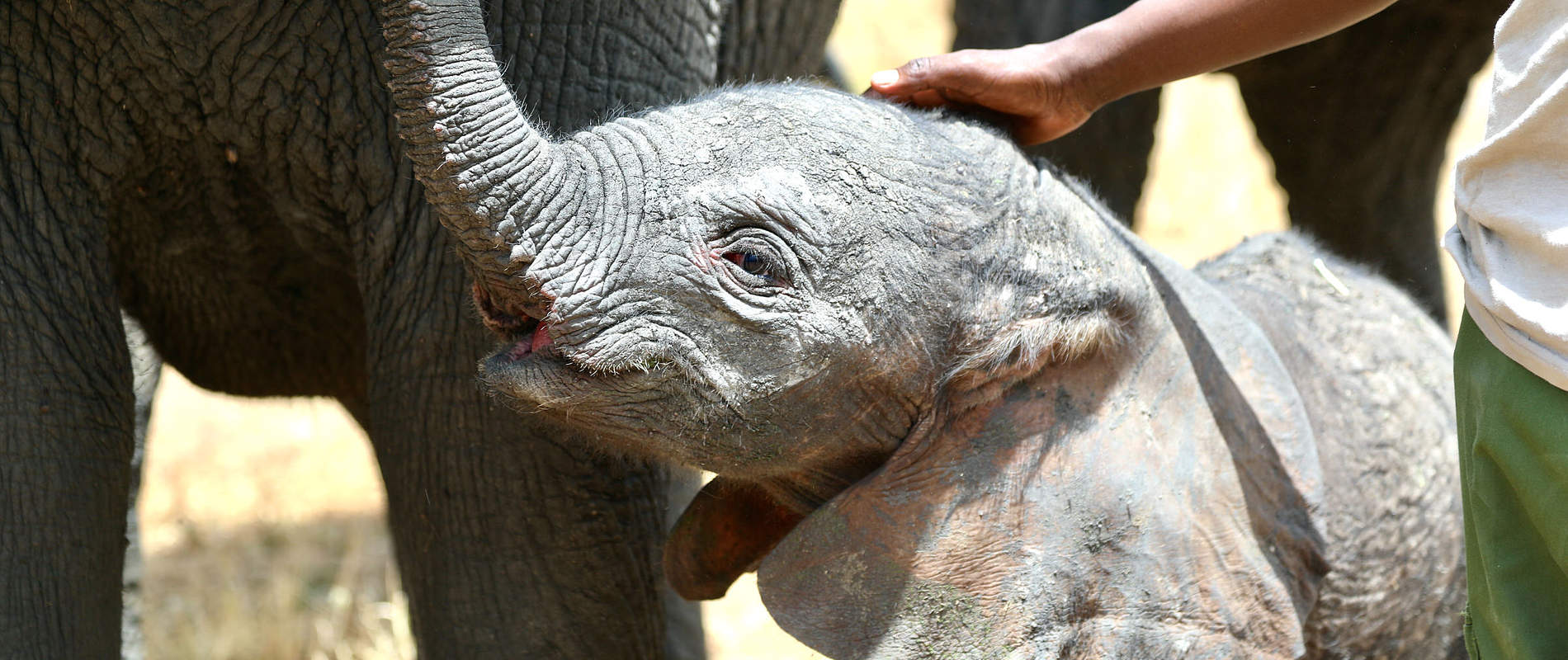Umani Springs has always been a place of miracles. Right now, perhaps our greatest miracle yet is unfolding in this leafy paradise. Murera — an elephant who defied the greatest odds to be here today — has become a mother. The entire story is absolutely remarkable, and something we are still coming to grips with.
Of all the orphans we have raised over the years, Murera’s rescue stands out. She came to us a broken elephant. The year was 2012, at the peak of Kenya’s poaching crisis. Murera had trodden on a poisoned spike trap, which ravaged her hind leg and left her with deep wounds. While struggling to keep up with her herd, she must have fallen and dislocated the other hip, incapacitating her entire hind area. Her little forehead was etched in pain, a heartbreaking reminder of the incomprehensible trauma she had endured.
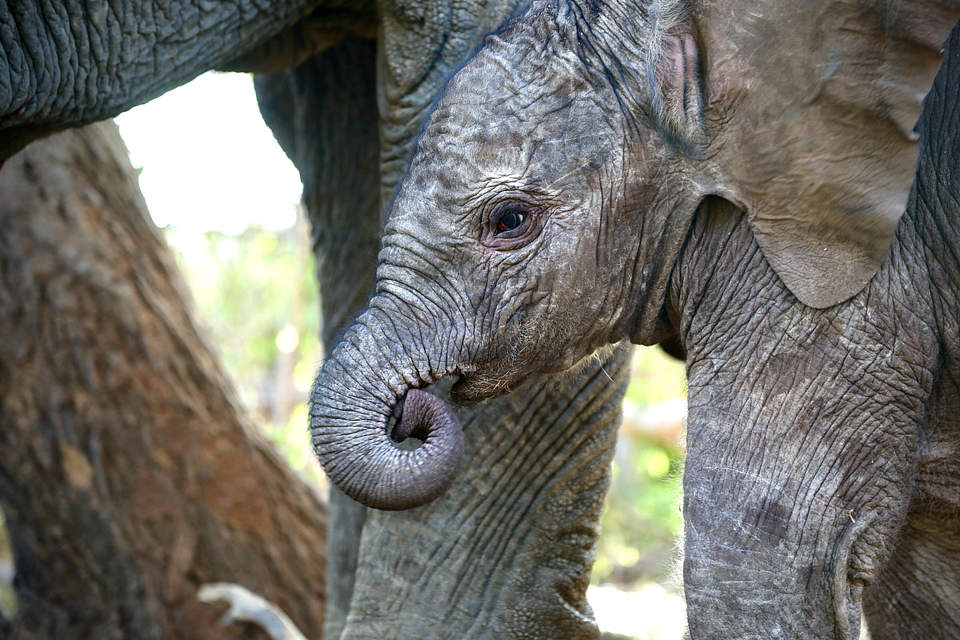
A little miracle has entered our midst in Umani Springs
Every vet recommended that Murera be euthanised. However, Daphne felt there was a sliver of hope and insisted that we fight for her life. Although she was in a dire state, the Keepers recognised Murera’s will to survive and resolved to save her. It was an uphill battle, as Peter, one of our senior Nursery Keepers remembered, “At the beginning, it was very hard for all of us… At one point she gave up and stopped feeding, but we persisted and tried to encourage her to eat and showed her our love.”
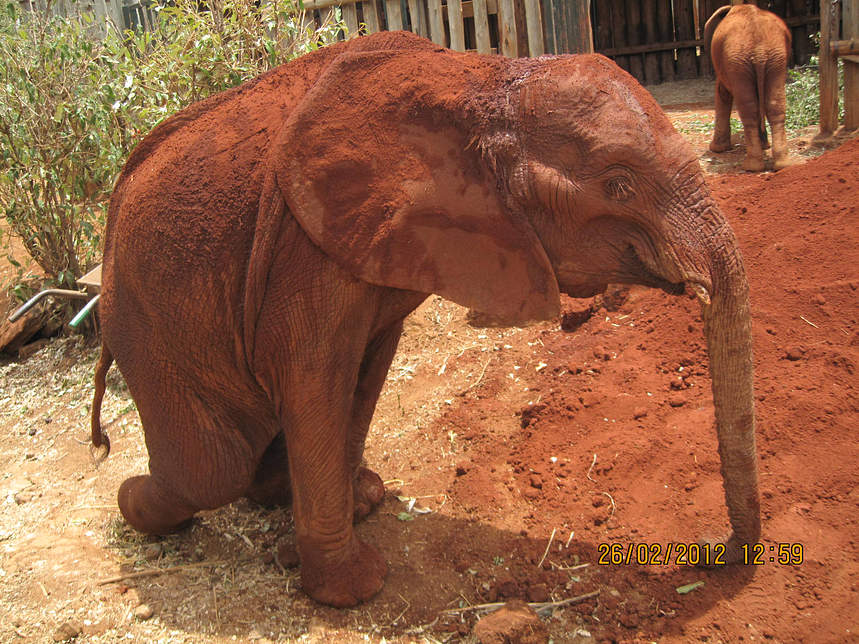
When Murera was rescued, she could barely take a single step
Their persistence paid off. Murera’s pain faded as her mobility improved, beginning with a few tentative steps and working up to long walks in the forest. However, for as much as she learned to live with her injuries, it was clear that Murera would be physically compromised for the rest of her life.
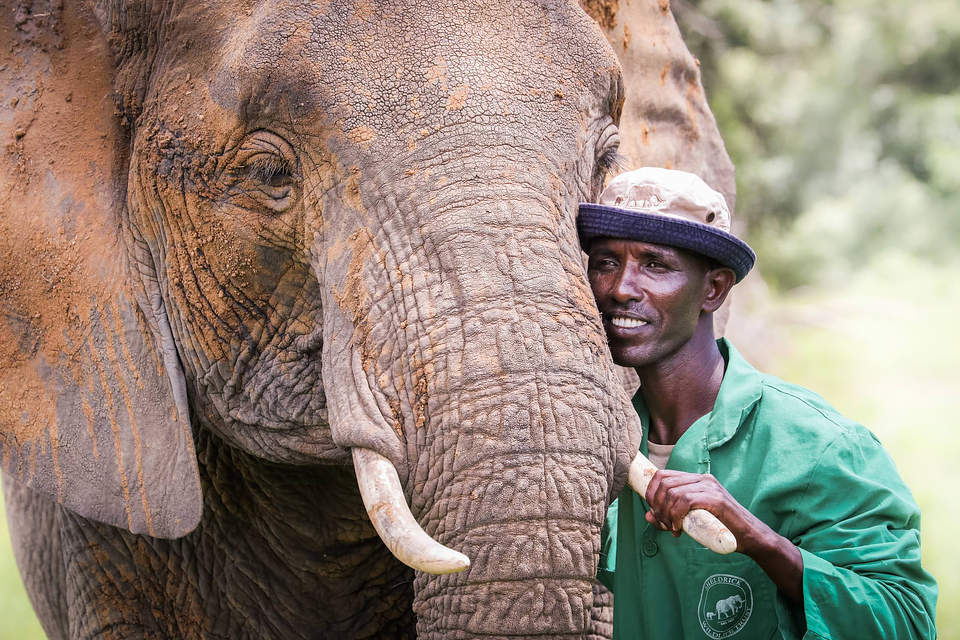
As the matriarch of Umani Springs, Murera is universally respected and adored
As we planned for Murera’s future, we knew that we had to forge a special path for her. Given her impairments, she would not be able to cover the great distances required to find food and water during the dry season in Tsavo. Sonje, another elephant with lifelong injuries who was rescued shortly after Murera, needed similar accommodations. Because of these girls, we established our third Reintegration Unit, Umani Springs, located in the perennially lush Kibwezi Forest. That was nine years ago. Under the girls’ leadership, Umani Springs has blossomed into an oasis where 18 orphaned elephants are thriving.
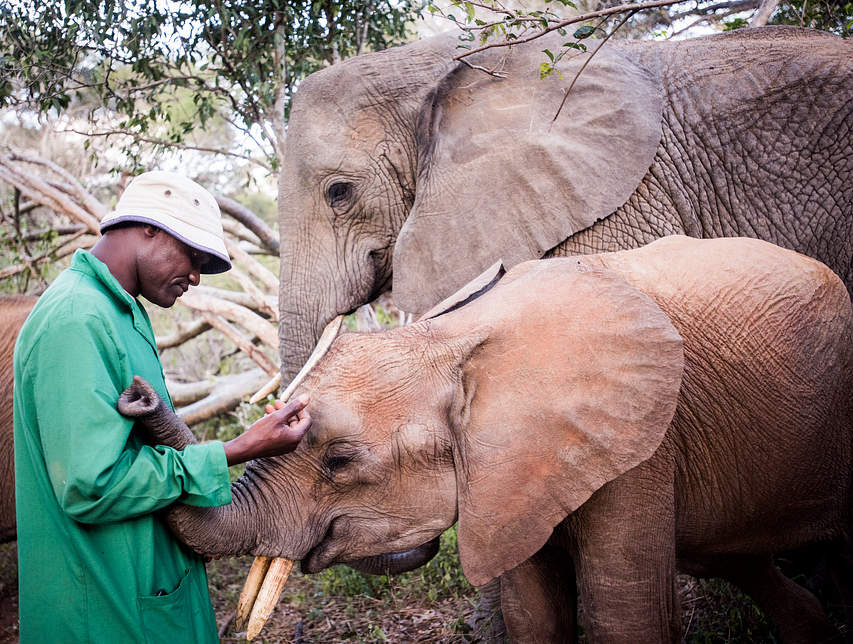
The untimely death of Luggard left Murera in tatters
It would be easy to cast Murera as a victim. Her life has been shaped by terrible human cruelty and heartbreak, yet she never let these experiences define her. Instead, in her quiet, stoic way, she has navigated and overcome every hurdle thrown at her.
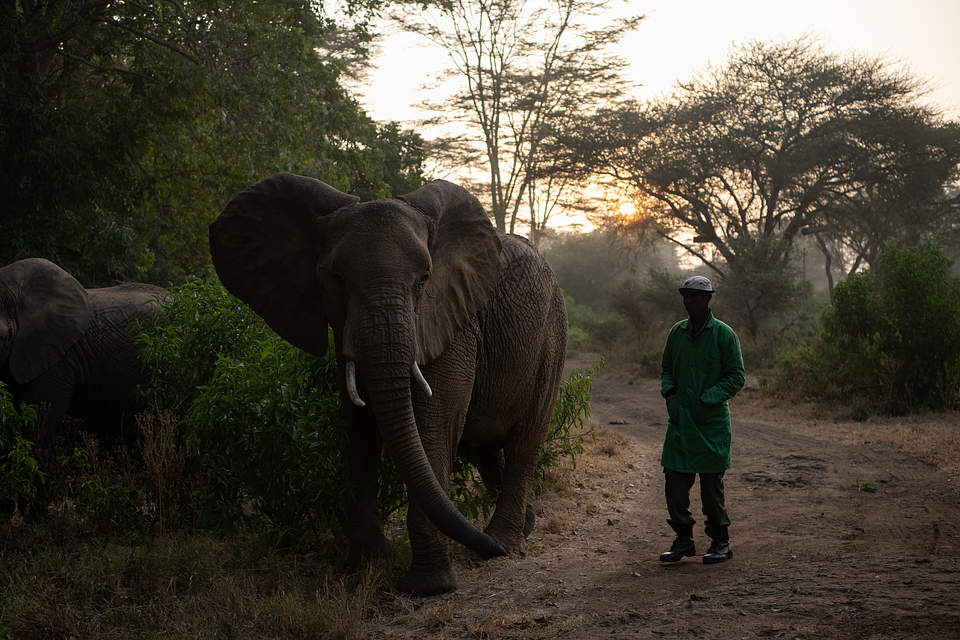
Following her 'wild safari,' the Keepers noticed Murera's body and behaviour changing
Murera’s journey into motherhood was borne from one of these hurdles. In May 2021, the Umani herd was rocked by the death of Luggard. A gunshot victim, he had always faced an uphill battle to survive. After five years, his body had simply taken him as far as it could carry him. Murera, who loved Luggard like her own son, was utterly devastated. Historically, she never strayed far from the dependent herd and always returned to the stockades at night. In the immediate wake of Luggard’s death, however, she disappeared on a four-day ‘wild safari.’ She then returned to the herd, her mourning period evidently over, and moved forward with her signature fortitude.
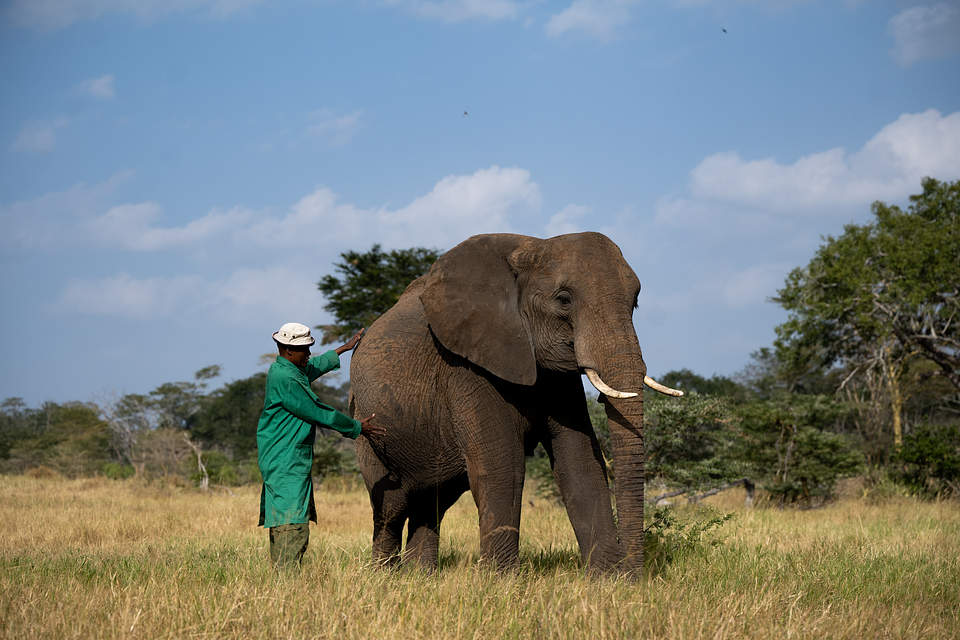
As time wore on, our suspicions were confirmed: Murera was pregnant
As the months turned into a year and then some, we noticed that Murera’s belly was growing progressively rounder. The Keepers, who know their elephant charges as well as they know their own children, observed that she was moody and just not quite herself. All signs indicated that our matriarch was pregnant. In hindsight, we believe that the loss of Luggard compelled Murera to venture out and seek a partner in the wild, perhaps knowing that the only way to heal her broken heart was to have a baby of her own. This was a stunning decision, given that Murera had always shunned the company of wild elephants, wary that their antics might put her compromised body at risk.

Murera gave birth to Mwana on the afternoon 12th March, a stone's throw from her human-elephant family
Nearly 22 months later to the day, Murera’s child made her grand debut. On 12th March 2023, as the rest of the dependent herd enjoyed their afternoon dust bath, Murera let out a single warning trumpet and drifted into the nearby bushes. We wondered how her body would handle labour, but the entire birth was seamless. Not ten minutes later, a beautiful baby girl was standing before us. We named her Mwana, which means ‘child’ in Swahili.
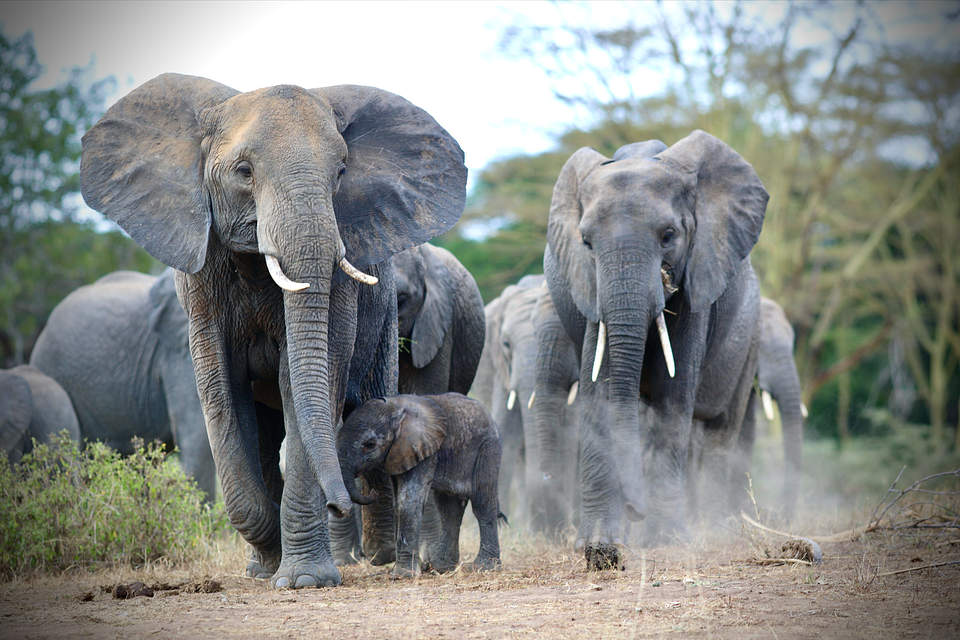
Everyone rejoiced in the arrival of Umani's first wild-born baby
Three wild bulls immediately converged on the scene, forming a protective outer ring while the dependent orphans surrounded mother and baby. Murera helped her daughter to her feet, while the others fussed and celebrated. The bulls remained for two full days and nights, standing vigil around the pair. We believe that one of the bulls, who was unusually attentive, is the father of Murera’s baby. He is an impressive looking chap, with a real empathetic streak — Murera chose her partner well!
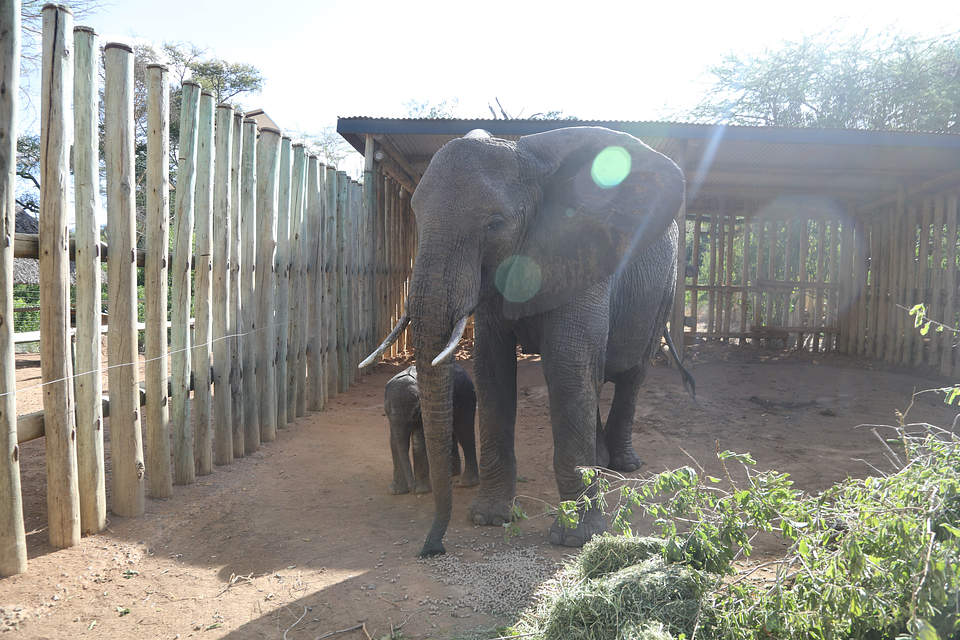
By day, Murera and Mwana roam free, but by night they enjoy the security of Murera's bedroom
On the second day, the Keepers noticed Mwana had a few scrapes and bruises that must have been inflicted overnight. Because Murera is used to sleeping inside a stockade, they thought it best to bring her and Mwana into her usual bedroom, where they could both spend the night in peace. Murera was amenable to this plan and happily showed her daughter into their nighttime quarters.
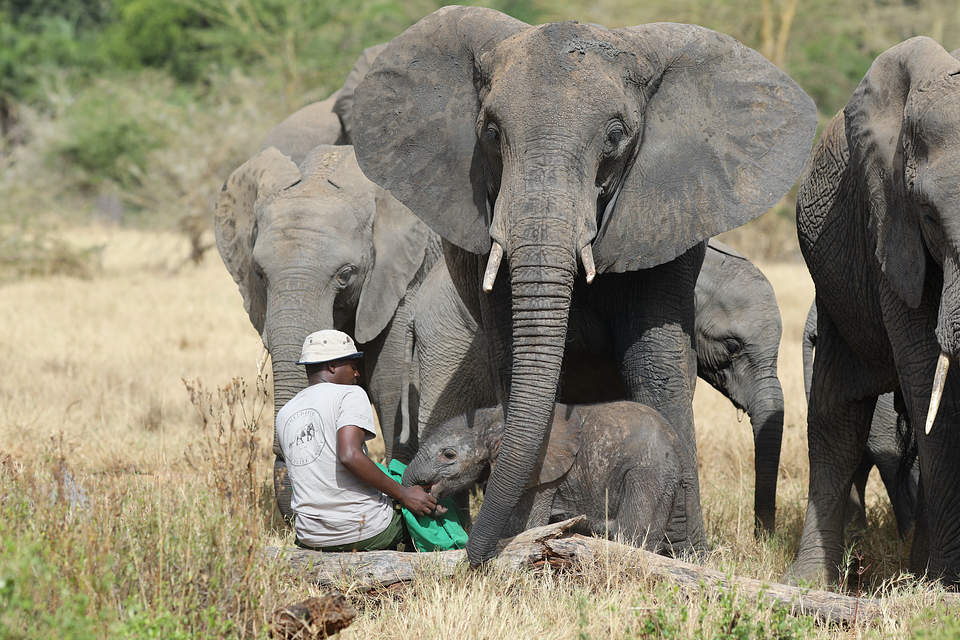
Murera immediately introduced Mwana to the men who raised her
By day, Murera and Mwana remain ensconced in the Umani herd. Murera is a generous mum: She invites her whole human-elephant family to spend time with Mwana, as if she appreciates that Umani’s first wild-born baby is a momentous occasion for everyone. The orphans are beside themselves with joy, each one constantly vying for the prized position by the baby’s side.
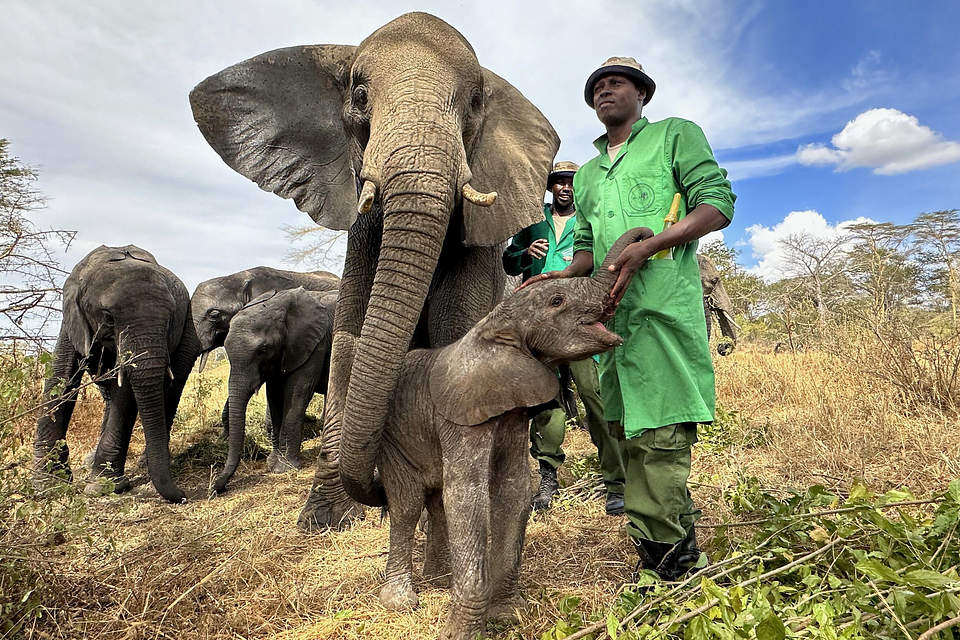
Our unconventional family portrait
Sonje is the top nanny, enthusiastically assisted by Lima Lima, Quanza, Zongoloni, Enkesha, and Kiasa. Even the boys are smitten with the little girl, gently shadowing her every step. Only Kapei is less than enthusiastic about Mwana’s arrival, knowing that she has dethroned him as the star of the show.
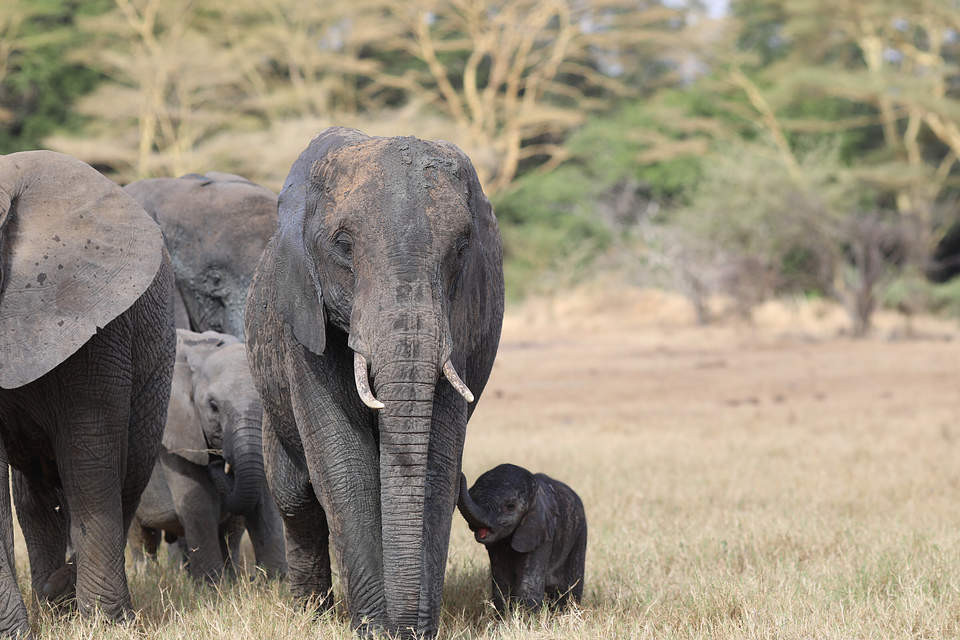
There was one curious twist to Murera's story, in that she wouldn't allow Mwana to Nurse
However, there was one tricky aspect to the story. While Murera was very attentive and loving towards Mwana, she wouldn't allow her to nurse. Any time the tiny calf attempted to suckle, Murera wandered off.
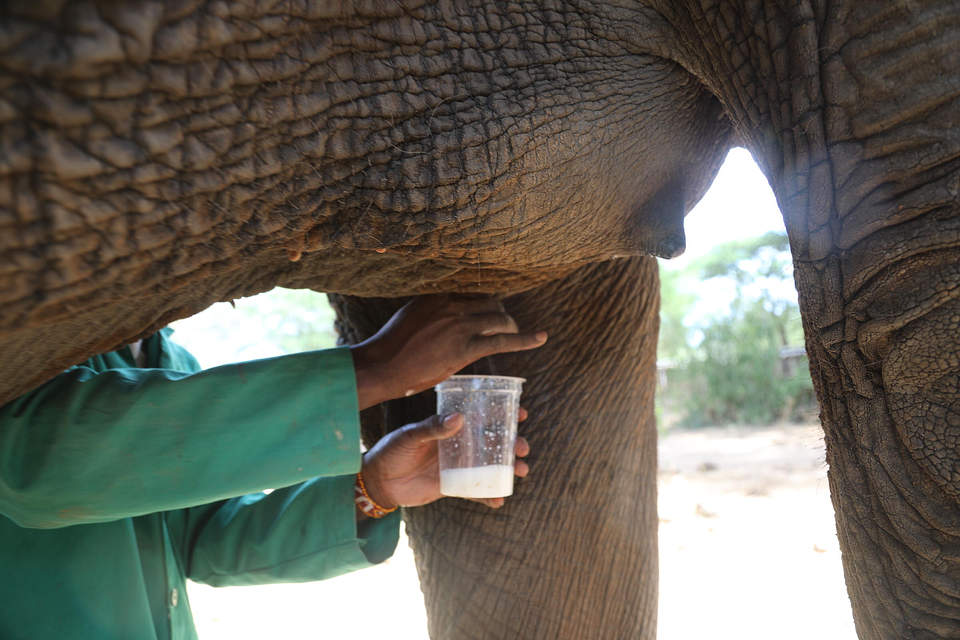
However, she was very cooperative and permitted the Keepers to hand-milk her
To ensure that Mwana got the all-important colostrum and other nutrients a newborn needs to survive, we felt it was time to intervene. The Keepers began hand-milking Murera, then bottle feeding her baby. In a staggering display of trust, Murera fully cooperated. She was in the hands of pros, as several of our Keepers have ample experience milking their own livestock back home and they know exactly what to do. Still, we were deeply humbled that Murera embraced such extraordinary measures.
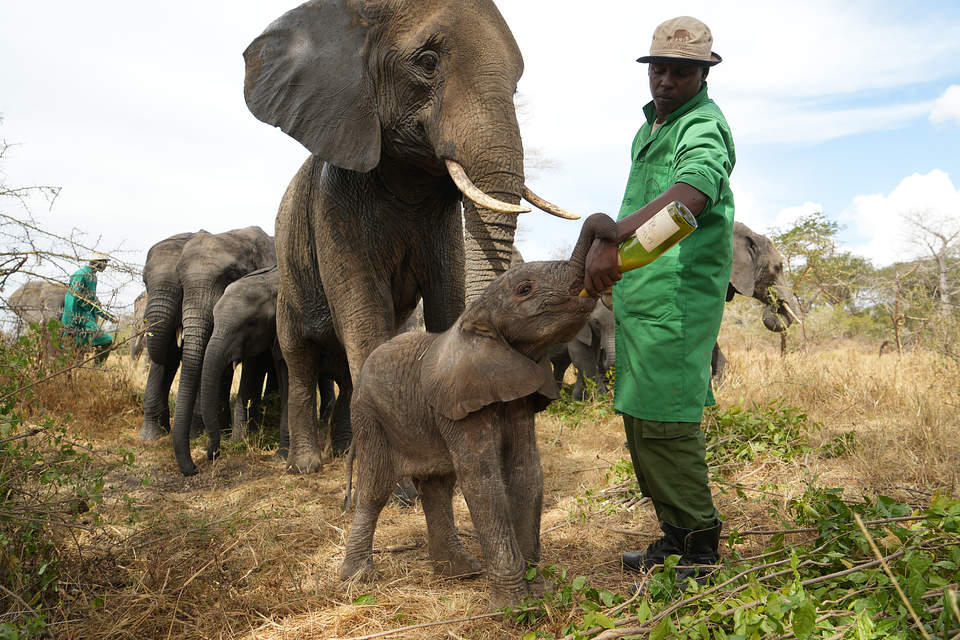
As Murera looked on, the Keepers would then bottle feed Mwana
Day and night, our Keepers remained by Murera and Mwana’s sides, milking mum and ensuring baby’s belly remained full. It was a full-time, round-the-clock job (on top of the not-insignificant responsibility of caring for an entire herd of orphaned elephants!), but one they were committed to continuing for as long as necessary.
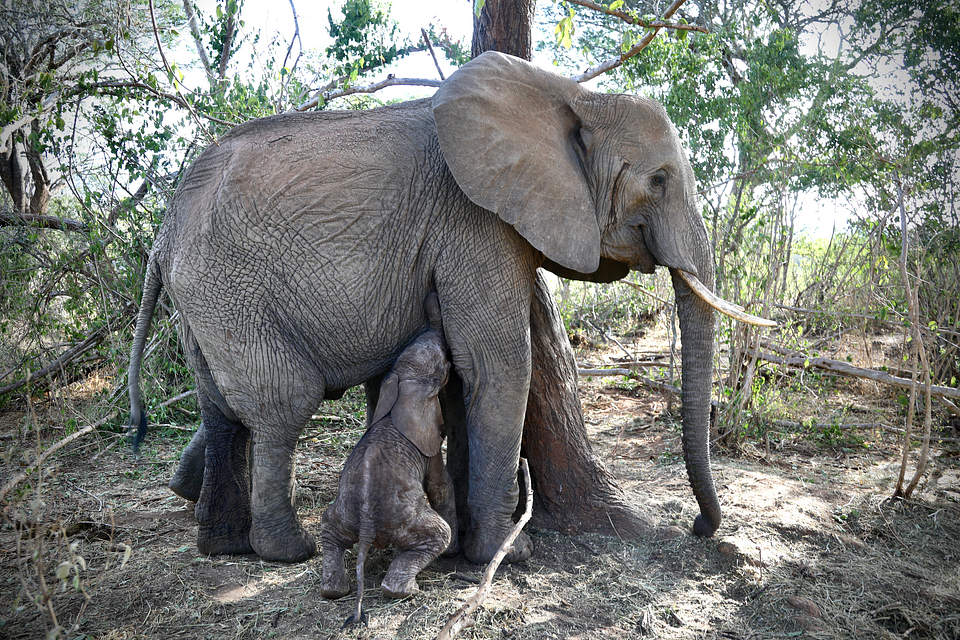
After 11 days, the concept of nursing finally clicked for Murera
On the 11th day, we finally had a breakthrough. Without preamble, Murera suddenly began propping her leg forward and allowing Mwana to nurse. Mwana, who has always had a healthy appetite, made a seamless transition from the bottle to breastfeeding.
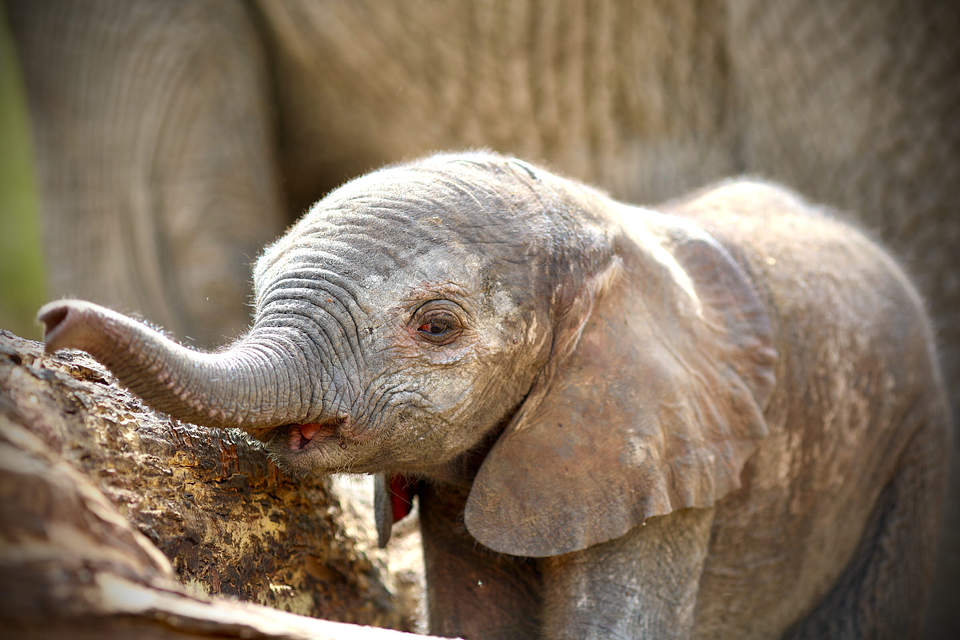
Mwana is healthy, energetic, and happy
Elephants constantly remind us that miracles are possible. Many thought she wouldn’t survive, but Murera proved them all wrong. Under her leadership, a herd of elephants have found their futures beneath the canopy of the Kibwezi Forest. Now, at 13 years old, Murera is embarking on the great new chapter of motherhood.
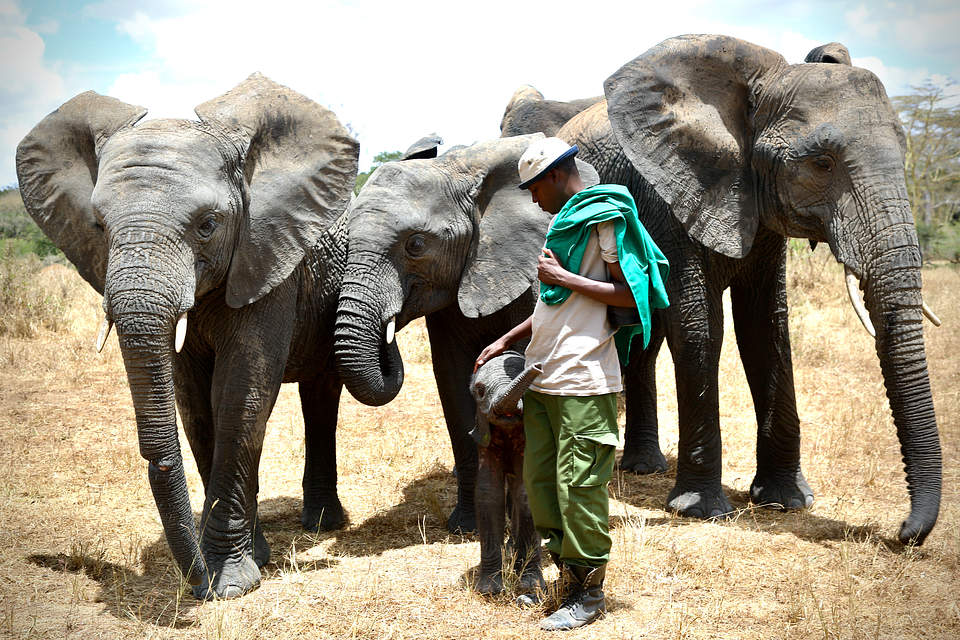
We feel so blessed to be part of this growing family
Only time will tell how Murera and Mwana’s little family takes shape. Perhaps they will remain anchored to the Umani herd, or they may venture further afield as Mwana grows. However their story unfolds, we will be there to support them, love them, and cheer them on.
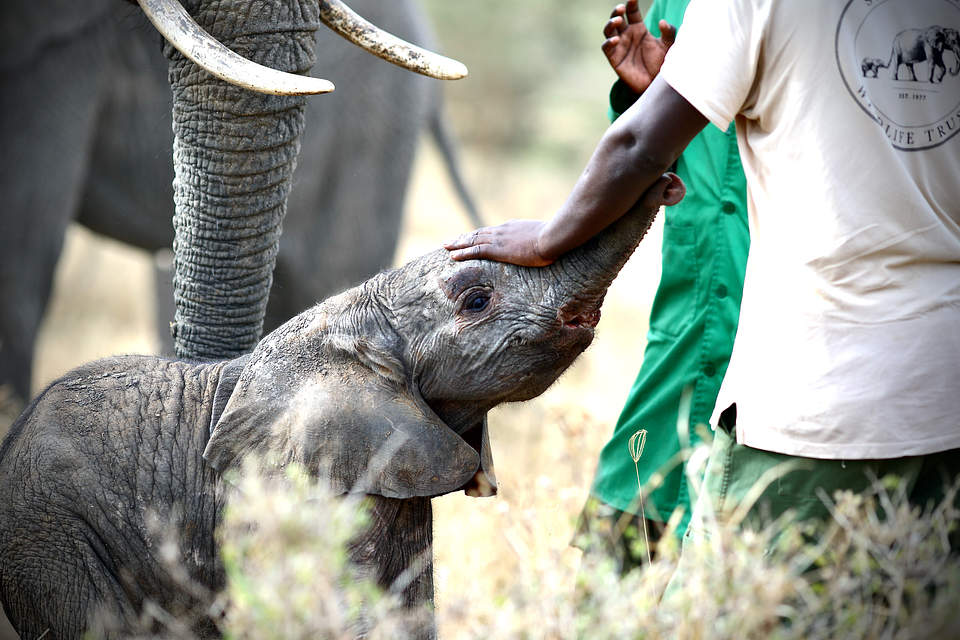
As Murera and Mwana go through life, we will be there for them, every step of the way
It feels fitting to end this joyous update with a quote from Adan, one of Murera’s Umani Keepers:
“There is a saying in Kikamba: ‘The mother of the impala does not have horns like her son, but she is still his mother.’ It’s a bit like that with Murera — she may be a bit lame and a bit slow, but she is still the matriarch.”
At last, our matriarch is also a mother.
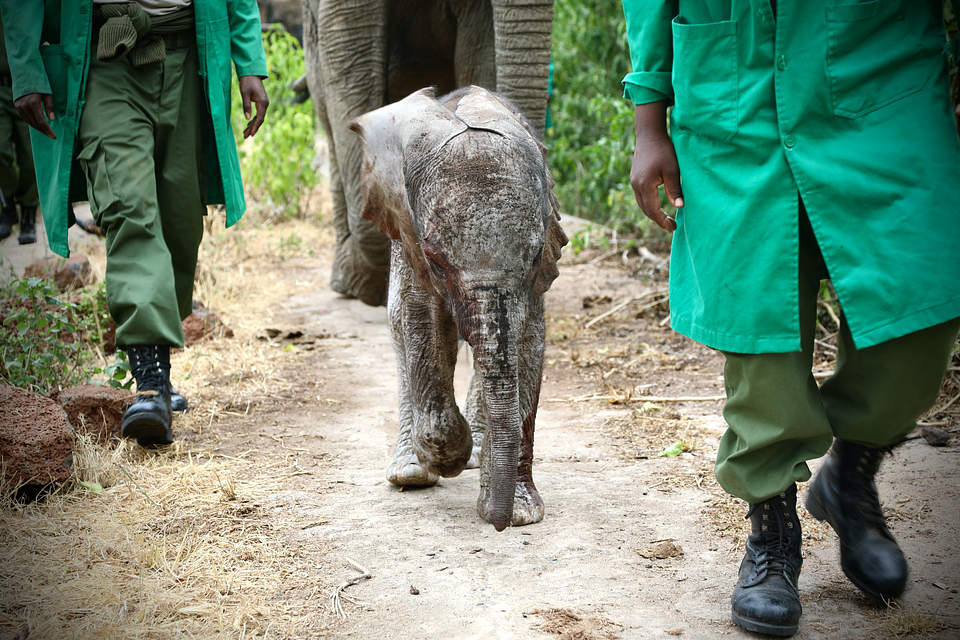
And this little girl's own story is just beginning!
